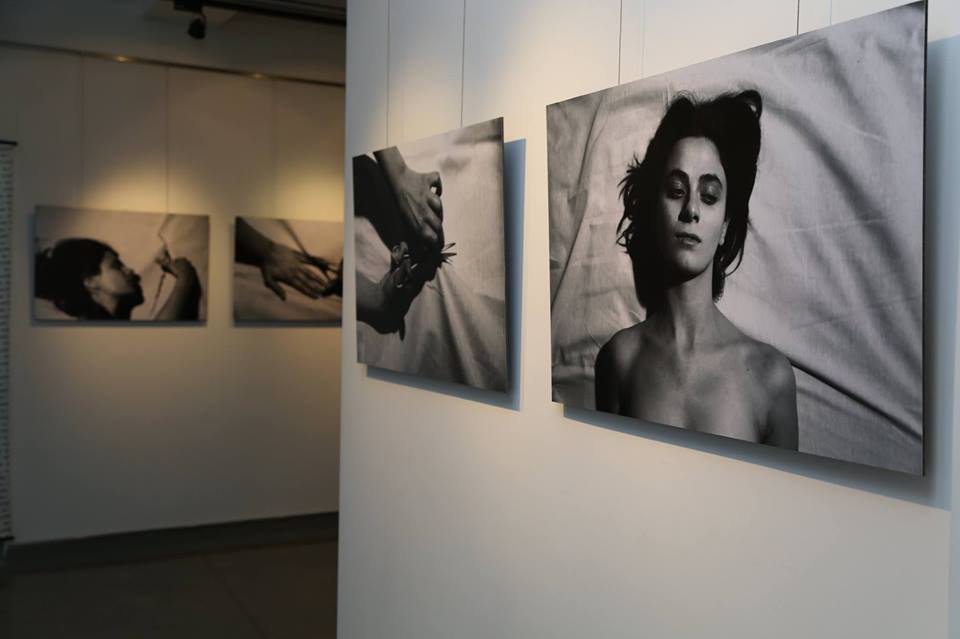A Struggle For Existence
Natia Givanishvili, a Georgian gender researcher, is part of the LGBT-community in Georgia and tells the story of an actively diminished and discriminated social group. With homophobia and transphobia infiltrating institutions of authority and the civil society, this is a movement far away from the moral standards which some of the most influential and visible community actors promote. In 2013, widespread homophobia lead to a violent riot, in which 50 LGBT activists faced 20,000 angry counter-demonstrators at a manifestation for LGBT rights.
Natia Givanishvili is an LGBT activist, a researcher and director of the Women’s Initiatives Supporting Group (WISG). The organisation primarily provides psychological and legal assistance to the grass-root movement by lobbying for larger inclusion of LGBT issues in Georgian legislation.
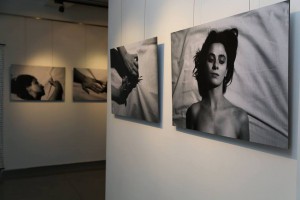
WISG recently conducted research on internalized homophobia in the Georgian LGBT community, as well as provided shadow reports for the European Union, United Nations, treaty bodies, and other institutions that the Georgian government stands accountable to. They also hold exhibitions, support social platforms and LGBT groups, and reach out to the public by providing information with regards to broadening the gender term to include the LGBT movement. During the Society of International Affairs trip to Tbilisi, Georgia, I was introduced to Natia at the ‘Trans-Narratives’ exhibition.
“This happens when I get tired of playing the role of a heterosexual man. When I can´t hold myself back anymore and become who I really am, a tall beautiful Woman.”
– Quote from the exhibition.
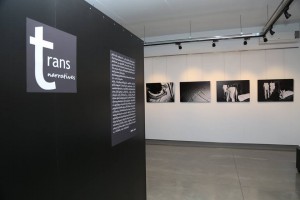
Below follows an interview with Natia, describing her thoughts, conclusions, and experiences regarding different aspects affecting the fight for LGBT rights in Georgia.
With respect to the historical context, how has the LGBT community been treated in Georgian society?
– When Georgia was part of the Soviet Union, Stalin (originally from Georgia), criminalized homosexuality in 1933 and intensified the hate-speech towards homosexuality. This law was used as an empowering tool in the political struggle for power; first, and foremost, it sought to exclude political opponents, dissidents, and activists, but also to denigrate Western society. The communist party was the only existing party, ruled by one strong leader. Looking at the present, this is still what Georgia as a community is striving for and expecting. A strong leader that can help us deal with the economic crisis and other crises that we are facing. This was the case with our former President Saakashvili, and the recent Prime Minister, Ivanishvili. When the political leaders have somehow not been able to fill the power vacuum that the communist party left behind, the Orthodox Church has stepped in. It is a strong actor, with one leading man – the Patriarch, who is preaching for uniformity; to think, dress and live alike, like in the Soviet Union. In this perspective, we are still struggling with our past with regards to those issues.
What is the Orthodox Church’s position as an institution and in what ways do they act to affect the public opinion?
– The Church here is a political actor, they have so much power and money that they think it is they who should make the decisions regarding changes in society. Therefore, there is an ongoing struggle for a place in the public space. For example, the International Day Against Homophobia, Transphobia and Biphobia is held on the 17th of May, but in 2013 the Patriarchate and the Church decided to celebrate the Day of Family Strength and Respect for Parents on this exact date. They celebrate by marching through the centre of the city with crosses and with priests preaching and singing.
– Furthermore, it has been decided that the world congress of families advocating “traditional family values” will be held between the 16th-18th of May next year, which again coincides with the International Day Against Homophobia, Transphobia and Biphobia. This is an American Christian organization that “defends the natural family as the fundamental unit of civilizations” and distances themselves from variations from what they define as the sexual norm, such as promiscuity, pornography, homosexuality, same-sex marriage and so on.
– We have very few dates that are important to the LGBT-community, which we want to use to be more out in the open in society, to speak about the problems we are facing and to emphasize our rights. But the Church is working against us, claiming those dates. That is one of the struggles that is going on right now.
How do the politicians act concerning these issues?
– The politicians are using the LGBT issues for their own materialistic agenda – power and wealth. There is very little knowledge in society about gender and sexuality. For example, this is not a subject that is brought up in school. Being openly homophobic is an easy way to mobilize voters and stand up against political opponents.
But if they use these issues to create a dividing line in politics, would they need to be opposed by people who disagree with them? Or is everyone on the same side?
– There are very few who disagrees, and the politicians that are not homophobic or do not phrase themselves in a homophobic way, don’t have great power within the parliament, nor the government, as they are a minority. For instance the political party: the Republicans has done a lot of work within the party to enhance the members’ knowledge about gender issues and the same goes for LGBT issues. But they would never, or at least not at the present time, use their work within the LGBT field for their pre-election campaign as something positive. They just don’t express themselves in a homophobic way, meaning they would not engage in work that openly supports LGBT groups.
Since you have been a part of planning and organizing demonstrations and manifestations concerning LGBT rights in Tbilisi, how were those events received and what was your experience like?
– The first demonstration that we organized was held on the 17th of May in 2012. We prepared it by sending letters to the police, and they assured us of their support as well as promised to protect the demonstration. But when we found ourselves surrounded by counter-demonstrators, the police were gone. After we called them, it took them about half an hour to arrive, despite the fact that we were positioned on one of the most centrally located streets in the city, and it was no traffic to talk about. Anyway, there were three different groups of religious activists surrounding us, and during this time the situation deteriorated and we got physically attacked.
– The second manifestation was held in 2013, and beforehand we were frequently in contact with the national home office as well as the police ambassador. Both parties were very eager to help and defend us – we even had a plan for security. Due to security concerns we were not marching this time, the plan was just to protest by standing outside parliament for about 20 minutes with our posters.
– Unfortunately the Orthodox Church got involved and urged “true believers” to come out on the streets of Tbilisi, and show their moral revulsion. They succeeded to mobilize around 20,000 counter-demonstrators, we were around 50 activists. Before we had even put up our posters my friend came running towards me screaming. Some priests had talked their way through the line of police officers and were now waving the big mass of counter-demonstrators into our group. Chaos ensued and we started to run towards the evacuation busses. It was a very traumatic experience having that huge, angry, screaming mass of people chasing us like that. But one group of 23 activists ended up in an even worse situation: they arrived a bit later than us on a parallel street to the main road, and the police officers refused to let them through the police
barricades. The mass of anti-gay demonstrators soon realized that this group of people were activists and started attacking them with fists and stones. A minibus managed to pick them up and evacuate them, but all the windows were completely broken when the bus managed to escape the chaos, and a couple of the activists suffered concussions. Four people were prosecuted for this violent assault. However, it was a long process and as a result all charges were dropped just last month, and the prosecuted were acquitted.
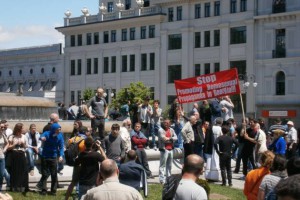
Creator: Henning von Bargen
– Because of the events in 2013 we didn’t organize any public protests in 2014, but in 2015 we have gone through with three different demonstrations in a short period of time, and we had very good protection from the police. The strange thing was that there weren’t any counter-demonstrators present, not even a small group.
– That can only mean one thing, that the state is in a position to negotiate with the Church when it wants to, and those processes are absolutely not transparent. I really appreciate the state’s involvement and engagement in our work, but the part about the Church is a bit fishy. But we will see what happens next year.
Does this mean that the activist groups that attacked you in 2012 are managed by the Church?
– The conservative activist groups are not officially controlled by the Church, but there are priests from the Church who are members of those groups. So the Church has an indirect influence. Some of those priests have even been given awards for their achievements by the Patriarch. But the Church doesn’t take any responsibility for the acts of those organizations, and it puts them in a very comfortable position. “It’s a group of people, they do what they want, but it’s not our responsibility since it’s not coming from us.”
How does the media approach gender and LGBT issues?
– The primary media that is used here in Georgia is TV, and the TV channels are mainly controlled by the state. None of the big channels have any anti-discrimination policies, which is a problem since we then end up in a situation where the individual journalist and/or producer gets to decide the moral values of each program. The programs broadcasted by the same TV channel can therefore have very different approaches. Some of the programs are very investigative and good, and other programs can be outright homophobic and sexist.
– What you can do is to write a reprimand, that has actually helped. Nowadays the journalists are more careful of expressing themselves in an openly homophobic way, but they still invite homophobes to their talk-shows without asking critical questions.
How has the legal and social situation developed in the last couple of years?
– The legal situation has improved and become more inclusive, the problem now is to implement the latest anti-discrimination laws in practice since the implementation mechanisms aren’t working very well. Homophobia within society has on the other hand spread and worsened. One reason for this is that the politicians use these issues in order to gain votes and to promote their own interests. For example, groups that work with LGBT related questions are always connected to political parties, at least from the outside, and even if those connections are not true, it makes voters more hostile towards those political parties and towards LGBT issues.
– The artificial resistance between European values and traditional values is also something which has escalated. It is a common thing to place these values as opposites, and to focus on the extreme points, without discussing examples of European countries that are relatively conservative and at the same time more accepting of the LGBT community. The media also helps to intensify these opinions. For example, if they are reporting from a Pride Festival somewhere in Europe they would typically choose the pictures that confirms their agenda and not the pictures that, for instance, show police officers showing their support and marching together with the protesters at Pride, which would probably generate more accepting reactions here in Georgia.
– There are also voices in society that connects different sexual deviations such as paedophilia with homosexuality, and since there is no sexual health education in school, people start to mix these totally different things up that creates a lot of aggression and hate towards the LGBT community as well.
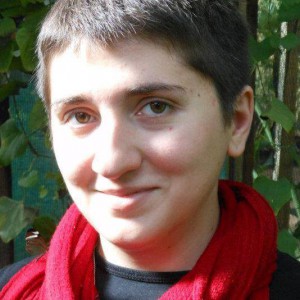
What are your plans for the upcoming year?
– As for WISG we will continue our research programs and shadow reporting. We are planning to work more with the police; we want to create a special police task force that will tackle hate-crimes. These kind of groups already exist in the USA, Sweden, the Netherlands, and Mexico etc. This is one of the recommendations that we wrote in the latest shadow report for UPR, and the Swedish response was actually one of the most tangible reactions. They recommended Georgia to create this kind of group, and for that I am very grateful, but we will see if the Georgian government will accept our request. We will also focus on the transgender group since they are the most exposed within the LGBT community; and therefore most likely to suffer from hate-crimes and physical abuse. In addition, we will most definitely have more art exhibitions!

